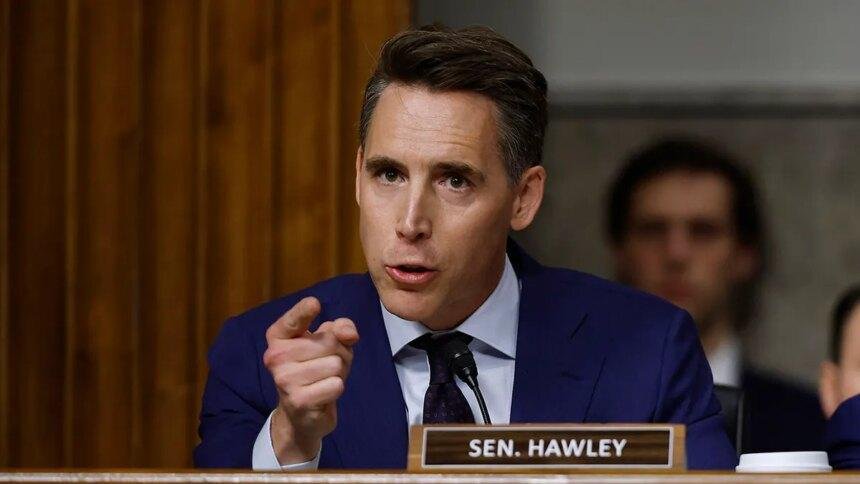Hawley Accuses Special Counsel of Political Spying: A Call for Accountability
In a striking condemnation, Senator Josh Hawley (R-Mo.) has leveled serious accusations against Special Counsel Jack Smith, alleging that his office engaged in politically motivated surveillance during the investigation into the January 6 Capitol riot. Hawley characterized this alleged surveillance as “an abuse of power beyond Watergate,” igniting a fierce debate over the boundaries of governmental authority and the implications for political discourse in the United States.
Allegations of Surveillance
According to reports from Fox News, the FBI, operating under Smith’s direction, reportedly obtained call logs and metadata from nearly a dozen Republican senators, including Hawley himself. This tracking involved the collection of call records and timestamps, but did not include the actual content of the conversations. Hawley expressed his outrage, stating that the newly released documents indicate that the Biden administration was “spying on the president’s political opponents,” which he described as a “profound violation of the separation of powers.”
Hawley’s comments reflect a broader concern among some conservatives regarding what they perceive as executive overreach under President Biden. He cited various instances, including alleged surveillance of Catholic churches and parents at school board meetings, as part of a pattern of governmental overreach that threatens civil liberties.
Historical Context: Watergate and Beyond
The Watergate scandal of the 1970s serves as a historical benchmark for discussions about governmental abuse of power. The scandal, which led to the resignation of President Richard Nixon, involved a break-in at the Democratic National Committee headquarters and subsequent cover-up efforts. Hawley’s comparison of the current situation to Watergate underscores the gravity with which he views the alleged actions of the Biden administration.
However, the context of political surveillance has evolved significantly since Watergate. The advent of digital communication and advanced surveillance technologies has raised new ethical and legal questions about privacy and governmental authority. Critics argue that the tools available today could enable more extensive and intrusive monitoring than was possible in the past, making the need for robust checks and balances more critical than ever.
Hawley’s Call for Investigation
In a series of statements, Hawley has called for a comprehensive investigation into the alleged surveillance activities. He emphasized the necessity for accountability, stating, “We need a full investigation of all involved: who knew about it, who ordered it, and who approved it.” He further asserted that anyone who violated the law should face prosecution, framing the issue as a test of constitutional limits.
Hawley’s rhetoric has resonated with a segment of the Republican base that views the Biden administration as increasingly authoritarian. He has positioned himself as a defender of constitutional rights, arguing that the government must not use its power to target political opponents. This perspective aligns with a broader narrative among conservatives who feel that their voices are being marginalized in the current political climate.
The Broader Implications
The implications of Hawley’s allegations extend beyond the immediate controversy surrounding the January 6 investigation. They raise fundamental questions about the role of government in monitoring its citizens and the potential for political bias in law enforcement. The balance between national security and individual rights has long been a contentious issue in American politics, and this latest episode adds fuel to an already heated debate.
Moreover, the allegations come at a time when trust in governmental institutions is waning. A recent Gallup poll indicated that public confidence in the FBI and other federal agencies has declined significantly in recent years. This erosion of trust complicates the landscape for law enforcement and political accountability, as citizens become increasingly skeptical of the motives behind governmental actions.
A Divided Response
Reactions to Hawley’s claims have been predictably polarized. Supporters of the senator argue that his accusations highlight a critical issue of governmental overreach, while critics dismiss them as politically motivated rhetoric designed to rally the Republican base ahead of upcoming elections. The division reflects a broader trend in American politics, where issues of surveillance and privacy are often viewed through a partisan lens.
As the debate unfolds, it remains to be seen how the Biden administration will respond to these allegations. The administration has yet to issue a formal statement addressing Hawley’s claims, but the potential for further investigations or inquiries into the matter could have significant ramifications for both parties.
Conclusion
Senator Josh Hawley’s accusations against Special Counsel Jack Smith represent a significant moment in the ongoing discourse about governmental power and political accountability in the United States. By framing the alleged surveillance as an abuse of power that surpasses even the infamous Watergate scandal, Hawley has ignited a debate that touches on fundamental issues of privacy, civil liberties, and the role of government in a democratic society. As calls for investigation grow louder, the implications of this controversy will likely resonate well beyond the halls of Congress, shaping the political landscape in the months and years to come.











